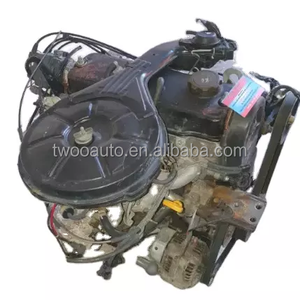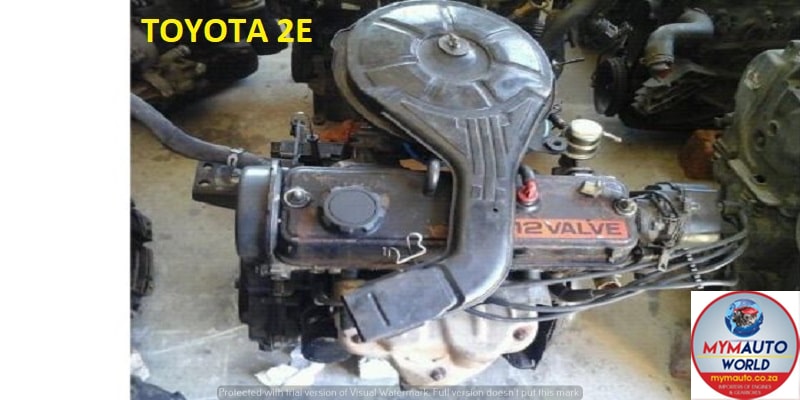Engine Purchasing Professional Tips on Choosing the Right Engine for Your Certain Demands
Picking the appropriate engine for your details needs involves a complex interplay of factors that surpass mere horsepower figures. From power output to fuel efficiency, the decision-making procedure can be discouraging. Recognizing the subtleties of engine kinds, dimensions, and their compatibility with your automobile is vital. There are expert tips that can aid browse this terrain with confidence. By diving right into the ins and outs of power versus effectiveness, assessing fuel rankings, and budgeting for long-lasting costs, one can truly maximize their engine option.
Power Vs. Performance: Finding the Equilibrium

When selecting an engine, it is essential to strike a balance in between power and performance to fulfill your details demands efficiently. Power refers to the engine's capability to create energy for propulsion, establishing aspects like acceleration, hauling ability, and general performance (Toyota Tazz Engine For Sale). On the various other hand, effectiveness relates to just how well the engine uses fuel to generate power, influencing factors such as gas economic climate and environmental kindness
Achieving the ideal balance in between power and efficiency is essential due to the fact that an engine that is too powerful may eat extreme gas, causing greater operating expense and unneeded stress on the setting. Conversely, an engine that focuses on efficiency over power might result in slow performance, particularly sought after circumstances like lugging heavy tons or driving uphill.
To make an informed decision, take into consideration elements such as your regular driving conditions, the desired use the car, and your individual preferences. By examining your needs and priorities, you can choose an engine that strikes the excellent balance in between power and efficiency, guaranteeing optimum performance while lessening ecological influence and operating expense.
Comprehending Engine Dimension and Kind

Usual engine kinds consist of inline engines, V engines, and rotary engines, each with its one-of-a-kind advantages and downsides. Comprehending the interaction between engine dimension and kind is important in picking an engine that lines up with your particular needs and priorities, whether it be power, performance, or an equilibrium of both.
Consider Your Lorry's Requirements
Considering your automobile's requirements is a basic action in the engine choice procedure to guarantee ideal efficiency and performance. It is necessary to examine variables such as the intended use of the automobile, its weight, towing capability, and gas efficiency requirements. If you are looking for an engine for a heavy-duty vehicle that will be utilized for towing, you will certainly require an effective engine with high torque capacities. On the various other hand, if you are picking an engine for a compact cars and truck primarily utilized for city commuting, fuel effectiveness might be an extra crucial aspect to take into consideration.

Examining Gas Performance Ratings
Analyzing gas effectiveness ratings is an essential facet of choosing the ideal engine for your vehicle, ensuring price savings and ecological sustainability. Fuel efficiency scores, typically gauged in miles per gallon (MPG) for gas engines or kilowatt-hours per 100 miles (kWh/100 miles) for electrical engines, suggest exactly how far a vehicle can take a trip on a particular quantity of fuel or power. Higher MPG or lower kWh/100 miles values indicate a lot more efficient engines, converting to minimized fuel expenses and reduced carbon discharges.
When assessing gas performance ratings, consider your driving habits and requirements. A very fuel-efficient engine can result in considerable savings over time if you commute long ranges daily. Additionally, contrast different engine alternatives within the same lorry class to recognize the most cost-effective choice. Aspects such as engine size, weight, aerodynamics, and crossbreed or electric capacities can all influence fuel performance.
Budgeting for Long-Term Costs
Strategically preparing for long-lasting expenditures is vital when picking an engine, ensuring economic sustainability over the automobile's life expectancy. While the first acquisition cost of an engine is a considerable aspect, it is crucial to take into consideration the lasting prices connected with maintenance, repairs, and gas consumption.
Moreover, looking into the accessibility here and expense of replacement components for the chosen engine is important in budget preparation. Engines with economical and readily offered parts can significantly influence long-lasting maintenance costs. Furthermore, considering the engine's longevity and anticipated lifespan can assist avoid unanticipated replacement prices in the future. By very carefully budgeting for these long-term expenditures and factoring them into the decision-making procedure, individuals can pick an engine that not only fulfills their immediate requirements but likewise continues to be economical throughout its lifespan. visit here
Conclusion
Finally, selecting the best engine for your details needs needs stabilizing power and performance, understanding engine size and kind, considering your vehicle's requirements, examining gas performance ratings, and budgeting for long-term expenses. By very carefully taking into consideration these factors, you can make sure that you pick an engine that fulfills your demands and provides optimal performance for your vehicle.
To even more fine-tune the choice procedure of an engine that strikes the ideal balance between power and effectiveness, it is vital to dig right into the ins and outs of recognizing engine dimension and kind. Engine dimension refers to the overall volume of air and fuel that can be pushed via the engine cylinders. Common engine kinds consist of inline engines, V engines, and rotating engines, each with its unique advantages and drawbacks. Understanding the interaction between engine size and kind is crucial in picking an engine that aligns with your details demands and Discover More Here top priorities, whether it be power, performance, or a balance of both.
Gas performance scores, normally determined in miles per gallon (MPG) for fuel engines or kilowatt-hours per 100 miles (kWh/100 miles) for electric engines, suggest exactly how far a vehicle can take a trip on a specific quantity of gas or electrical energy.